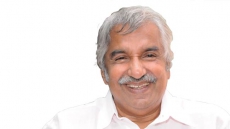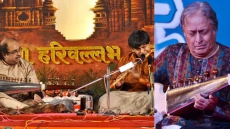Amidst speculation on his political ambitions, JNUSU President Kanhaiya Kumar on Friday said he has no intention of joining mainstream politics or contesting any election.
The PhD student, who is facing sedition charge, also said that Parliament attack convict Afzal Guru was a citizen of India and a debate on his death penalty is “legitimate”. He said Guru is not his “idol” but Rohith Vemula, the Hyderabad Central University student who committed suicide, is.
“I am not a politician, I am a student. I have no intention of joining mainstream politics or contesting any election. “I want to question as a student and I will like to answer as a teacher in the future. So, the question about my political ambitions should be kept aside,” he said.
“The people of the country have not voted for me… It’s the students of the university who have. I am not the country’s president but of the JNU students’ union. I will only talk of them and for them,” he said at a press conference here.
“For me, Afzal Guru was a citizen of the country who was punished under the law. Whether that punishment was right or wrong, anyone can debate that as the law permits the same. Guru is not my idol but Rohith Vemula is,” Kumar added.
The 29-year-old said “my task is to study and fight for those who wish to study but are unable to do so. Since the fight is long, there can’t be a victory march but a unity march on that.”
Reacting to remarks that taxpayer’s money was being wasted in running the university, Kumar said “I want to tell the people of the country that the taxes they pay are being invested in the right place.” Replying to a question, he said “I am against patenting of nationalism and the concept of Akhand Bharat propagated by ABVP and select sections of society.”
Kumar was arrested on February 12 in a case of alleged sedition over a controversial JNU event to commemorate Guru’s death anniversary.
He reached the varsity’s campus around an hour after being released from Tihar jail yesterday, triggering celebrations on the campus that had lately become a venue for vociferous protests. He was accorded a grand welcome on the campus and delivered a one-hour-six-minute speech outside the JNU administration building.




